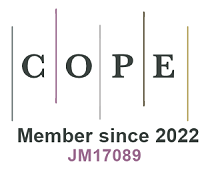ERCAL, a regional initiative for rare diseases in Latin America and the Caribbean
Abstract
The importance of establishing programs to address the challenges of patients living with rare diseases has been recognized internationally, yet many countries, especially in low- and middle-income regions, are lagging in the recognition of the challenges and needs of patients and families. To improve this situation, the Enfermedades Raras en el Caribe y America Latina (ERCAL) initiative was established in 2020 with the vision of bringing together patients, patient representatives, organizations, researchers, clinicians, regulators, and all interested stakeholders in the rare diseases ecosystem under a common collaborative platform to sum efforts to improve the lives of patients and families living with rare diseases in the Latin American and the Caribbean region. Over the last three years, we have been working consistently to establish an agenda of priorities and objectives to guide the work of the initiative and address the major challenges faced by the rare disease community in the region.
Keywords
THE CHALLENGE OF RARE DISEASES IN LATIN AMERICA AND THE CARIBBEAN
The Latin American and Caribbean (LAC) region spans more than 20 million square kilometers and encompasses 33 countries with a diverse population of approximately 665 million people, accounting for 8.2% of the world population[1]. Countries in the LAC region share similar historical backgrounds, cultures, and communicate in highly related languages, namely Spanish and Portuguese, but they also face common challenges when it comes to rare and undiagnosed diseases.
Rare diseases (RDs) are conditions defined by their low occurrence or prevalence in the general population. Different countries and regions in the world have defined specific prevalence thresholds to define RDs. For example, in the United States a rare disease is one that affects less than 200,000 individuals at a time, according to the Orphan Drug Act[2]. The European Union has adopted a definition of RD as one that affects fewer than 1 in 2,000 people[3]. In Latin America, while some countries have adopted the European threshold, there is not a region-wide common definition for the prevalence of RDs. There are more than 7,000 documented RDs in the scientific literature, although it is estimated that there are about 10,000 of them[4,5], yet most countries recognize only a small number of conditions. Approximately 40-50 million people live with a rare disease in Latin America, and 3-4 million of them belong to indigenous and underserved populations. Consequently, RDs represent a tremendous unmet medical need for healthcare systems in LAC and around the world.
Rare and undiagnosed diseases in LAC pose a significant challenge to the region's healthcare systems; prompt diagnosis, access to appropriate care, prevention, and delivery of effective treatments are among the major challenges. Timely, affordable, and effective access to diagnostics and treatments for patients living with RDs in Latin America is not only a medical issue but also a reflection of the level of the local social and healthcare system development. Furthermore, RDs have an impact beyond the affected patients themselves. They also impact the lives of families and caretakers, affecting their physical and psychological quality of life, family dynamics, employment, and economics[6].
Efforts from multiple research and clinical groups, as well as patient advocacy organizations in individual countries, are ongoing and are most valuable. However, coordinated regional efforts are needed to address the shared challenges of rare and undiagnosed diseases in the LAC region. Leveraging a major shared language, common cultural and socioeconomic histories, an amalgamation of research, clinical, regulatory, and advocacy efforts across the region are more likely to make an impact for patients throughout LAC and attract support from international organizations to help promote a better present and future for patients living with RDs in the region. With this mindset, the Enfermedades Raras en el Caribe y America Latina (ERCAL) initiative was formed at the beginning of 2020 as a collaborative effort to aggregate and synergize the work of patient organizations, clinicians, researchers, and patient advocates working to improve the situation of patients living with rare diseases in LAC.
Origins and motivation of ERCAL
The origins of the ERCAL initiative can be traced back to as early as 2010, when members of the International Conference for Rare Diseases and Orphan Drugs (ICORD) met in Buenos Aires, Argentina in 2010, to discuss and identify the major international challenges faced by RD patients around the world. Discussions during the ICORD meeting in Tokyo, Japan in 2012 resulted in the Yukiwariso Declaration[7], which aimed to provide a rationale and framework for policy, legislation, and action plans for RDs worldwide. After holding the conference in Mexico City, Mexico in 2015, the ICORD conversations in Cape Town, South Africa in 2016 resulted in the Protea Declaration, a call to action for RDs[8]. The Declaration discussed the need for local legislation and policies to establish national government emphasis on research and regulatory programs. Follow-up conversations to the Protea Declaration call for action focused on identifying regions of the world in need of additional emphasis on RD research, diagnosis, and access to orphan drugs beyond Africa; one of these regions is Latin America and the Caribbean.
The ERCAL initiative was therefore created in partnership with ICORD in February of 2020 to increase awareness and with an emphasis on developing an agenda for rare diseases in LAC. In 2021, ERCAL became an independent initiative with the mission to improve the lives of people living with RDs and their families in the LAC region through collaboration, outreach, advocacy, and education, improving the access to diagnosis, research, care, treatments, and services.
Between 2020 and 2021, a template was developed for investigators, clinicians, and leaders of patient advocacy groups in LAC to elaborate on and present through video conference the specific issues in their countries, in order to identify the themes that would guide the ERCAL initiative. The specific issues discussed during these country-specific presentations included: (1) status of existing legislation, regulations, and policies in each country; (2) national research and regulatory activities and areas of emphasis; (3) challenges, barriers, or obstacles to needs of the rare diseases community; (4) legislative or policy needs in research, regulatory, or healthcare services; (5) opportunities for future research collaboration; and (6) suggested future activities for the country, the region, and a sustainable ERCAL initiative. Thus, a comprehensive understanding of the landscape of RDs in the region was accomplished. In this way, patients, patient representatives, organizations, researchers, clinicians, regulators, and all interested stakeholders in the RD ecosystem in LAC were called upon to come together in a common collaborative platform to sum efforts and work on the challenges faced by patients and families living with RDs in the region.
Current activities and efforts
Over the last four years, ERCAL has brought together patients, organizations, clinicians, researchers, advocates, industry representatives, and other stakeholders in the RD ecosystem in LAC through video conferences and the co-organization of a very successful hybrid 1st Congress on RareDiseases in Latin America and the Caribbean (#CongresoERCAL) in March of 2023 in Bogota, Colombia[9].
Including the voice and representation of patients and patient organizations as part of ERCAL has been a priority since the establishment of the initiative to hear directly from them about the major challenges the RD community in LAC faces and promote their involvement and empowerment to develop proposals and solutions to address such issues. ERCAL considers individual and organization membership, which can be requested by filling in an interest questionnaire on the website. Currently, the membership includes more than 50 affiliated individuals representing 20 of the LAC countries plus US members [Figure 1]. Additionally, 20 allied patient or advocacy organizations across LAC are uniting efforts as part of ERCAL and working towards solutions to the challenges faced by patients and families living with RDs in the region. In following ERCAL’s principles of inclusivity and collaboration, ERCAL welcomes individual or organization members who want to collaborate and pool efforts to advance the agenda of rare and low-prevalence diseases in LAC. Current allied organizations range from disease-specific patient organizations, larger umbrella organizations and federations, and other advocacy organizations that have voluntarily requested membership as part of the ERCAL regional initiative.
Figure 1. Countries represented among the membership of ERCAL/CEPCAL as of January 2024. The current individual members of CEPCAL represent 20 of the 33 countries in the Latin America and Caribbean region, and members from the United States. Figure created with mapchart.net.
Since 2020, the ERCAL leadership and membership have worked on identifying the major topics of relevance and need to advance the rare diseases agenda in LAC and pinpoint the priority projects to work on. The work of ERCAL members and projects are organized around Working Groups focused on eight major themes [Table 1]. A primary focus of ERCAL is to promote and help establish research and collaborative networks among members and organizations working on RDs throughout the region, to strengthen the local capabilities and share knowledge, resources, and tools. Similarly, we aim to establish international collaborations to direct world scene attention to the needs of patients, families, researchers, and clinicians in LAC. ERCAL members participate in international consortia and projects such as the International Rare Diseases Research Consortium (IRDiRC), the Undiagnosed Diseases Network International (UDNI), and the Collaborative Global Network 4 Rare Diseases (CG4RD), emphasizing the need to direct resources and attention to the development of early diagnosis, integral care, and access to treatment programs in LAC. This attention is important to achieve healthcare equity and realize the objectives of the UN Resolution on “Addressing the Challenges of Persons Living with a Rare Disease and their Families” adopted in 2021[10] and the WHO Report on “Accelerating access to genomics for global health” published in 2022[11].
ERCAL/CEPCAL working groups and their objectives
| CEPCAL working group | Objective(s) |
| Legislation and regulation for rare diseases in LAC | • Advocate for favorable legislation and regulation regarding rare and low-prevalence diseases, diagnosis, and access to drugs and therapies in the LAC region |
| Collaborative and research networks for rare diseases in LAC | • Create and strengthen ties and collaboration between CEPCAL members and members of other networks and organizations to advance the objectives of CEPCAL • Establish CEPCAL as the regional and international reference platform to seek reliable information and amalgamate efforts on rare and low-prevalence diseases in LAC |
| Access and implementation of molecular diagnostics technologies | • Promote and advocate for access to molecular diagnosis in an efficient, affordable, and accessible way and in a reasonable time frame for any patient suspected of having a rare and low-prevalence genetic disease • Advocate for the incorporation of genetics and molecular diagnostics into routine medical practice in LAC |
| Access and implementation of information and digital technologies | • Break the barriers to accessing information and healthcare, such as distance, healthcare services availability, language, and socioeconomic capabilities |
| Access to integral care and implementation of centers of excellence in rare diseases | • Advocate for access to integral care within the region for patients living with rare and low-prevalence diseases in LAC to improve their disease management and overall quality of life |
| Access to clinical trials, therapies and treatments | • Promote the inclusion of patients from LAC in clinical trials to enable early access to innovative therapies to treat rare and low-prevalence diseases • Advocate for timely and affordable access to therapies for rare and low-prevalence diseases in the region by bringing stakeholders together to find solutions |
| Education, outreach and training in rare diseases | • Produce educational, informational, and training materials for patients, families, healthcare professionals, and the general public to raise awareness and increase education about rare and low-prevalence diseases in LAC • Increase and improve the understanding and awareness of healthcare professionals in LAC regarding rare and low-prevalence diseases and the technologies and strategies that exist to improve the diagnosis and care of patients living with them • Increase the awareness about rare and low-prevalence diseases in the general public |
| Diversity, equity, and representation of indigenous and vulnerable populations in LAC | • Promote and advocate for equal access to diagnosis, care, treatment, and information for patients living with rare and low-prevalence diseases regardless of their socioeconomic or genetic ancestry background to achieve equitable healthcare for everyone in LAC |
One of the major challenges in addressing the needs of patients and families in LAC is the limited access to diagnostic technologies and treatments. While more than 80% of rare and low-prevalence diseases have a genetic etiology that can be studied through genetic and molecular technologies, the majority of patients in LAC remain undiagnosed or experience significant delays in receiving a proper and definitive diagnosis. This not only prolongs their diagnostic odyssey but also hinders the development and implementation of targeted treatment approaches that could reduce morbidity and mortality and improve quality of life. Initial efforts from ERCAL to evidence the need for early and effective disease screening and diagnosis strategies have been made by documenting the current state of newborn screening programs in the region and proposing strategies for better implementation[12]. Through ERCAL, we aim to help promote and support the implementation of molecular diagnostics programs and clinical centers of excellence in the region that can reduce the diagnosis time for patients living in LAC and provide appropriate care.
Access to treatments is another major challenge for RD patients in LAC. The scarcity of available treatments for RDs, including the newer molecular therapies, which currently only reach 10% of RDs, is not the sole concern. The high cost of therapies is amplified in LAC countries versus higher-income countries and regions. Publicly funded health systems in much of LAC cannot subsidize the cost and patients must pay out of pocket for treatments and other medical costs. Moreover, orphan drug prices are not regulated in the region and there is great variability among countries in terms of price and access for RD therapeutics. An objective of ERCAL is to advocate for regional regulation of approval and prices for RD treatments that can enable governments in the region to better negotiate with pharmaceutical companies to benefit patients across LAC.
Looking into the future, CEPCAL
In January 2024, ERCAL assumed a new name to more accurately signify its evolution into an inclusive collaborative platform, with engaged members from across the LAC region, including patients, researchers, clinicians, patient representatives, and others working across all areas of the rare and low-prevalence diseases ecosystem. Additionally, in response to patient and patient advocate feedback regarding the use of the term “rare” and its somewhat negative connotation in Spanish, we have adopted the broader term of “poco frecuentes” to represent all patients living with low-prevalence diseases in LAC. Henceforth, the Colaborativa para Enfermedades Poco Frecuentes en el Caribe y América Latina (CEPCAL) will carry on with the work started as ERCAL in 2020 so that all patients living with any rare and low-prevalence disease in our region are recognized and have the best possible quality of life.
Given the broad intended reach of ERCAL/CEPCAL, we have established a website (https://www.cepcal.org/) and maintain our presence in social media through different channels to reach diverse audiences relevant to the objectives of the collaborative, from patients and patient organizations (Facebook, Instagram, and Threads: CEPCAL_LATAM) to professionals working on RDs in the region (LinkedIn) and a broader audience interested in RDs (Twitter/X: @CEPCAL_LATAM). As the vast majority of informational, educational, and outreach materials are primarily available in the English language and this is not a native language for most patients and people living in the LAC region, one of the primary objectives of CEPCAL is to increase awareness and education through the production of reliable materials in the languages of people in the region. Through our social media channels, we have started distributing informational and educational materials in Spanish, Portuguese, and English with the intent of increasing the number of resources available to patients and professionals in the three main languages in the region. Similarly, videos and webinars produced by ERCAL/CEPCAL and allied organizations are being deposited on our YouTube channel (https://www.youtube.com/@CEPCAL_LATAM).
A major interest of CEPCAL is to break barriers and improve the quality of life for all patients living with RDs across the region. It is estimated that Latin America is home to approximately 50 million indigenous people, of which 3 to 4 million are calculated to live with a rare disorder. The majority of indigenous peoples are underserved in healthcare, social, and educational services. An important planned project for CEPCAL is also to translate and produce educational and informational materials about rare and low-prevalence diseases in some of the major indigenous languages spoken in the region to help bridge the informational gap and reduce stigma about these conditions in populations that do not speak the three major languages of the region, empowering patients and families from these populations.
As we continue growing the CEPCAL network and advance towards accomplishing the objectives of the different Working Groups, we invite everyone involved in rare diseases in LAC to join this Collaborative and work together to amplify the efforts and voices of patients, organizations, researchers, clinicians, and all stakeholders to improve the quality of life of patients living with rare and low-prevalence diseases in the region. We are optimistic that the noble cause of improving the lives of people living with rare diseases in Latin America and the Caribbean can be advanced; CEPCAL is prepared to play its part continent-wide.
DECLARATIONS
Acknowledgments
The authors thank current members and allied organizations for their work and ongoing support of the former ERCAL initiative and the CEPCAL collaborative. The authors thank the Chan Zuckerberg Initiative for financial support for ERCAL activities in 2021-2022.
Authors’ contributions
Made substantial contributions to the conception and writing of the original manuscript: Gonzaga-Jauregui C, Reichardt JKV, Groft SC
Provided insightful comments, edited and revised the manuscript: Gonzaga-Jauregui C, Salazar C, MacDonald J, Reichardt JKV, Groft SC
Availability of data and materials
Not applicable.
Financial support and sponsorship
None.
Conflicts of interest
All authors declared that there are no conflicts of interest.
Ethical approval and consent to participate
Not applicable.
Consent for publication
Not applicable.
Copyright
© The Author(s) 2024.
Supplementary Materials
REFERENCES
1. Comisión Económica para América Latina y el Caribe (CEPAL). The world has 8 billion people, 662 million of whom live in Latin America and the Caribbean. Available from: https://www.cepal.org/en/news/world-has-8-billion-people-662-million-whom-live-latin-america-and-caribbean [Last accessed on 22 Feb 2024].
2. Orphan Drug Act of 1983. US Food and Drug Administration. Public law 97-414 -Jan. 4, 1983. Available from: https://www.govinfo.gov/content/pkg/STATUTE-96/pdf/STATUTE-96-Pg2049.pdf [Last accessed on 22 Feb 2024].
3. European Commission. Rare diseases. EU research on rare diseases. Available from: https://ec.europa.eu/info/research-and-innovation/research-area/health-research-and-innovation/rare-diseases_en [Last accessed on 22 Feb 2024].
4. Gonzaga-Jauregui C, Lupski JR (Editors). Genomics of rare diseases: understanding disease genetics using genomic approaches. A volume in translational and applied genomics. Amsterdam: Elsevier Inc.; 2021.
5. Haendel M, Vasilevsky N, Unni D, et al. How many rare diseases are there? Nat Rev Drug Discov 2020;19:77-8.
6. Dias AG, Daher A, Barrera Ortiz L, et al. Rarecare: a policy perspective on the burden of rare diseases on caregivers in Latin America. Front Public Health 2023;11:1127713.
7. Forman J, Taruscio D, Llera VA, et al. International Conference for Rare Diseases and Orphan Drugs (ICORD). The need for worldwide policy and action plans for rare diseases. Acta Paediatr 2012;101:805-7.
8. Baynam GS, Groft S, van der Westhuizen FH, et al. A call for global action for rare diseases in Africa. Nat Genet 2020;52:21-6.
9. 1er congreso de enfermedades raras de latinoamérica y el caribe - congresoERCAL. Available from: https://sites.google.com/view/cepcal/proyectos-projetos/congreso-cepcal/1er-congresoercal [Last accessed on 27 Feb 2024].
10. United Nations. Resolution adopted by the general assembly on 16 December 2021. Addressing the challenges of persons living with a rare disease and their families. Available from: https://www.rarediseasesinternational.org/wp-content/uploads/2022/01/Final-UN-Text-UN-Resolution-on-Persons-Living-with-a-Rare-Disease-and-their-Families.pdf [Last accessed on 22 Feb 2024].
11. World Health Organization. Accelerating access to genomics for global health: promotion, implementation, collaboration, and ethical, legal, and social issues: a report of the WHO Science Council. Available from: https://www.who.int/publications/i/item/9789240052857 [Last accessed on 22 Feb 2024].
Cite This Article
Export citation file: BibTeX | RIS
OAE Style
Gonzaga-Jauregui C, Salazar C, MacDonald J, Reichardt JKV, Groft SC. ERCAL, a regional initiative for rare diseases in Latin America and the Caribbean. Rare Dis Orphan Drugs J 2024;3:6. http://dx.doi.org/10.20517/rdodj.2023.48
AMA Style
Gonzaga-Jauregui C, Salazar C, MacDonald J, Reichardt JKV, Groft SC. ERCAL, a regional initiative for rare diseases in Latin America and the Caribbean. Rare Disease and Orphan Drugs Journal. 2024; 3(1): 6. http://dx.doi.org/10.20517/rdodj.2023.48
Chicago/Turabian Style
Gonzaga-Jauregui, Claudia, Carlos Salazar, Jennifer MacDonald, Juergen K.V. Reichardt, Stephen C. Groft. 2024. "ERCAL, a regional initiative for rare diseases in Latin America and the Caribbean" Rare Disease and Orphan Drugs Journal. 3, no.1: 6. http://dx.doi.org/10.20517/rdodj.2023.48
ACS Style
Gonzaga-Jauregui, C.; Salazar C.; MacDonald J.; Reichardt JKV.; Groft SC. ERCAL, a regional initiative for rare diseases in Latin America and the Caribbean. Rare. Dis. Orphan. Drugs. J. 2024, 3, 6. http://dx.doi.org/10.20517/rdodj.2023.48
About This Article
Special Issue
Copyright
Data & Comments
Data

 Cite This Article 3 clicks
Cite This Article 3 clicks













Comments
Comments must be written in English. Spam, offensive content, impersonation, and private information will not be permitted. If any comment is reported and identified as inappropriate content by OAE staff, the comment will be removed without notice. If you have any queries or need any help, please contact us at support@oaepublish.com.